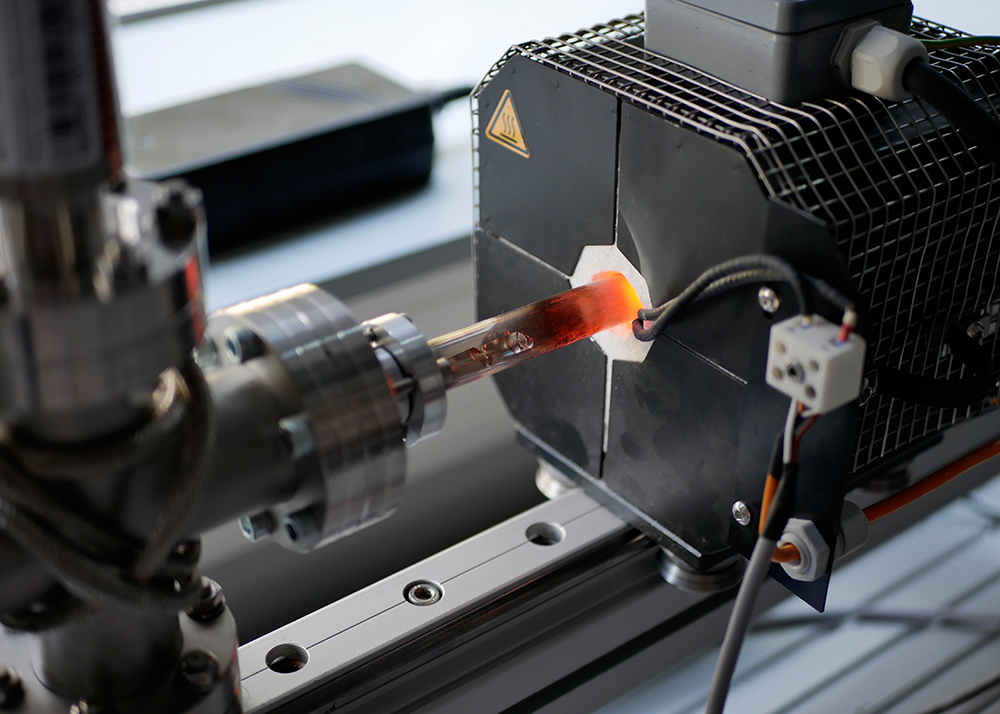Fraunhofer CSP starts up an effusion measuring station for solar cells
A unique measurement system that can be used to measure the quality and properties of diffusion barriers in silicon solar cells is now available at the Fraunhofer Center for Silicon Photovoltaics CSP. This will allow the properties of silicon solar cell coatings to be precisely determined, and will help improve the efficiency of solar cells.

During the industrial manufacturing of solar cells, passivating the silicon volume – creating a protective layer – using hydrogen is essential in order to maximize the solar cells’ efficiency. During passivation, a plasma process is used to apply a hydrogen-rich silicon-nitride layer (SiN:H layer) to the surface of the solar cell. After that, the SiN:H layer is activated in a thermal process, which allows the hydrogen from this layer to penetrate the volume of the solar cell. There, the hydrogen binds recombination centers and evens out impurities, for example. This process improves the efficiency of the solar cells.
However, during thermal activation of the SiN:H layer, hydrogen evaporation into the atmosphere can also permit the opposite process to take place – effusion – in which hydrogen atoms are lost. Given this circumstance, in order to prevent effusion and/or optimize SiN:H passivation, it is necessary to be aware of any hydrogen effusion from the system. A central question is what conditions cause hydrogen to diffuse.
The effusion measuring station that has now been created at the Fraunhofer CSP will allow the hydrogen concentration in the SiN:H layers to be determined. The effusion and diffusion measurement of hydrogen made possible by this new process will help researchers develop optimized SiN:H volume passivation, for instance by analyzing what are known as diffusion barriers. These barriers suppress H effusion into the atmosphere and thus improve hydrogen diffusion into the silicon volume, which in turn increases its efficiency.
The effusion measurement station is also available for industrial and research partners in order to help improve the efficiency and long-term stability of crystalline solar cells. This innovative measurement system was created as part of a research project in cooperation with Hanyang University (South Korea).